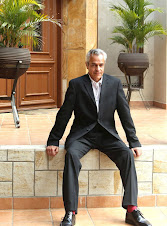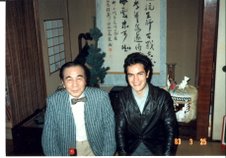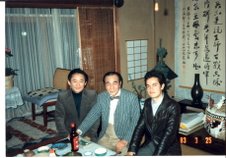XVI Festival Latinoamericano de Música, Day 1
The first day I attended, 26 May, was the third of a composers’ conference adjacent to the festival. I was invited to read a paper - written it in the nick of time, during the journey across - and I read it in the third place, following papers by Diana Arismendi and Miguel Astor.
Arismendi’s paper provided an outline of the rich developments in composition teaching and practice taking place in Venezuela in the wake of the gigantic growth in orchestral performance brought about by José Antonio Abreu’s youth orchestra movement, known internationally as El Sistema. Miguel Astor discussed knowledgeably possible reforms to the teaching of harmony and counterpoint, and whether they should be taught at all in modern times - his answer being yes, they should. Mine took up the topic “The artist in transit” which had been proposed as a theme by the conference organisers. I surveyed topics of national identity and survival in different cultures, based on my own experiences. This paper was the only one in the whole morning to provoke no comment from the audience, which left me puzzled. Following mine came a paper by Emilio Mendoza, a Venezuelan composer, which stirred controversy by highlighting what Mendoza saw as the relative neglect of composition by the very forces that had unleashed such impressive developments in orchestral playing. Mendoza made the point that the creation of new music was being overlooked at Venezuela’s peril, since in time all the youth players would be forgotten whereas the composers and their works would be remembered. Given that the whole festival was, somehow, a beneficiary of El Sistema’s largesse, and that numerous pieces by Venezuelan composers were, in fact, being performed at the festival, this paper was greeted with some strength of feeling by Venezuelan colleagues. It was instructive to witness the debate, and I admired Mendoza’s courage and compelling manner. The last paper was by Rodolfo Acosta, a Colombian composer, who talked about his experiences teaching composition in an environment characterised by conservatism but blessed with pockets of innovation.
Alfredo Rugeles, pensativo. Foto AF.
Arismendi’s paper provided an outline of the rich developments in composition teaching and practice taking place in Venezuela in the wake of the gigantic growth in orchestral performance brought about by José Antonio Abreu’s youth orchestra movement, known internationally as El Sistema. Miguel Astor discussed knowledgeably possible reforms to the teaching of harmony and counterpoint, and whether they should be taught at all in modern times - his answer being yes, they should. Mine took up the topic “The artist in transit” which had been proposed as a theme by the conference organisers. I surveyed topics of national identity and survival in different cultures, based on my own experiences. This paper was the only one in the whole morning to provoke no comment from the audience, which left me puzzled. Following mine came a paper by Emilio Mendoza, a Venezuelan composer, which stirred controversy by highlighting what Mendoza saw as the relative neglect of composition by the very forces that had unleashed such impressive developments in orchestral playing. Mendoza made the point that the creation of new music was being overlooked at Venezuela’s peril, since in time all the youth players would be forgotten whereas the composers and their works would be remembered. Given that the whole festival was, somehow, a beneficiary of El Sistema’s largesse, and that numerous pieces by Venezuelan composers were, in fact, being performed at the festival, this paper was greeted with some strength of feeling by Venezuelan colleagues. It was instructive to witness the debate, and I admired Mendoza’s courage and compelling manner. The last paper was by Rodolfo Acosta, a Colombian composer, who talked about his experiences teaching composition in an environment characterised by conservatism but blessed with pockets of innovation.
Alfredo Rugeles, pensativo. Foto AF.
The evening concert was by Cuarteto Venezolano. In the programme was Manena Contreras’s Instantes, which has shared a programme with my own String Quartet No. 1 ‘Montes’ in several concerts of the incomparable Momenta Quartet. This performance in Caracas was not as full of verve as the Momenta’s renditions. In an interesting and varied programme, I was particularly pleased by Arcángel Castillo’s Cuarteto de Cuerdas #1 and by Alejandro Cardona’s Historias Mínimas: Cuarteto No. 5. Castillo’s had a movement handled with challenging simplicity of material and dexterity of touch, based, I believe, on an indigenous dance rhythm. Cardona’s piece was rich in Bartókian echoes, especially in a slow movement reminiscent of the ‘night music’ atmosphere, but on the whole displaying an individual approach to quartet writing, with highly professional control of texture, colour and, most impressively, pacing.





No comments:
Post a Comment